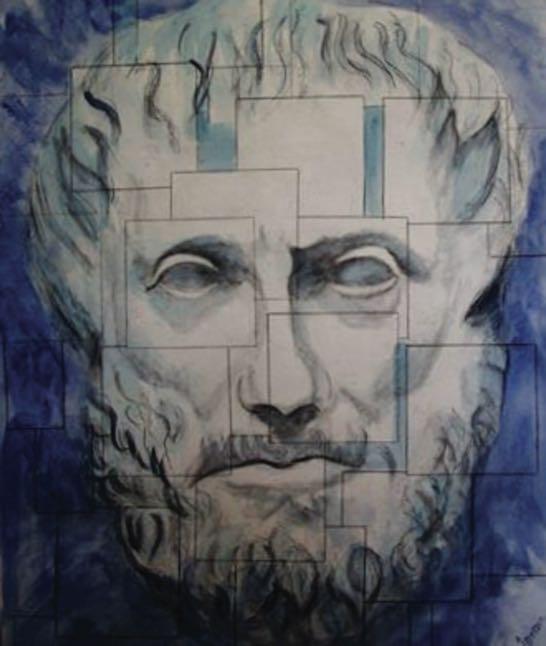
Aristotle's most famous work on ethics is the Nicomachean Ethics, which aims to describe the ultimate end and good for human beings.
One of the most puzzling features of this classic is that Aristotle seems to waver between two views. These are firstly that happiness involves the activity of the moral as well as the intellectual virtues (this is sometimes called 'inclusivism' by Aristotle scholars) and secondly that happiness consists in nothing but the intellectual activity of contemplation (sometimes called 'exclusivism'). In this article I will explore what he says about happiness, and ultimately conclude that for Aristotle perfect happiness indeed consists in philosophical contemplation.
Ultimate Happiness
At the beginning of the Nicomachean Ethics Aristotle first aims to show that there is an ultimate end (that is, goal) of life. This end, he says, is the chief good which is desirable for its own sake, and this is what we ultimately seek and desire in all our actions. Aristotle then says that everyone agrees that this highest good is happiness (Greek eudaimonia, literally meaning 'good spirits'), and that living and doing well are the same as being happy. Yet as a definition this alone is rather primitive, as it does not really tell us what happiness is.
Aristotle discusses three different lifestyles all traditionally thought to be happy: the life of pleasure, the political life, and the virtuous life. He rejects the identification of happiness with the life of pleasure because such a life is 'slavish' and 'suitable [only] for cattle'. Neither can happiness be equated with honour - usually considered the goal of political life - because that depends more on those who honour than on the one honoured.
This story is from the August/September 2022 edition of Philosophy Now.
Start your 7-day Magzter GOLD free trial to access thousands of curated premium stories, and 9,000+ magazines and newspapers.
Already a subscriber ? Sign In
This story is from the August/September 2022 edition of Philosophy Now.
Start your 7-day Magzter GOLD free trial to access thousands of curated premium stories, and 9,000+ magazines and newspapers.
Already a subscriber? Sign In

Metaphors & Creativity
Ignacio Gonzalez-Martinez has a flash of inspiration about the role metaphors play in creative thought.

Medieval Islam & the Nature of God
Musa Mumtaz meditates on two maverick medieval Muslim metaphysicians.

Robert Stern
talks with AmirAli Maleki about philosophy in general, and Kant and Hegel in particular.

Volney (1757-1820)
John P. Irish travels the path of a revolutionary mind.

IT'S A WONDERFUL LIFE
Becky Lee Meadows considers questions of guilt, innocence, and despair in this classic Christmas movie.

"I refute it thus"
Raymond Tallis kicks immaterialism into touch.

Cave Girl Principles
Larry Chan takes us back to the dawn of thought.

A God of Limited Power
Philip Goff grasps hold of the problem of evil and comes up with a novel solution.

A Critique of Pure Atheism
Andrew Likoudis questions the basis of some popular atheist arguments.

Exploring Atheism
Amrit Pathak gives us a run-down of the foundations of modern atheism.